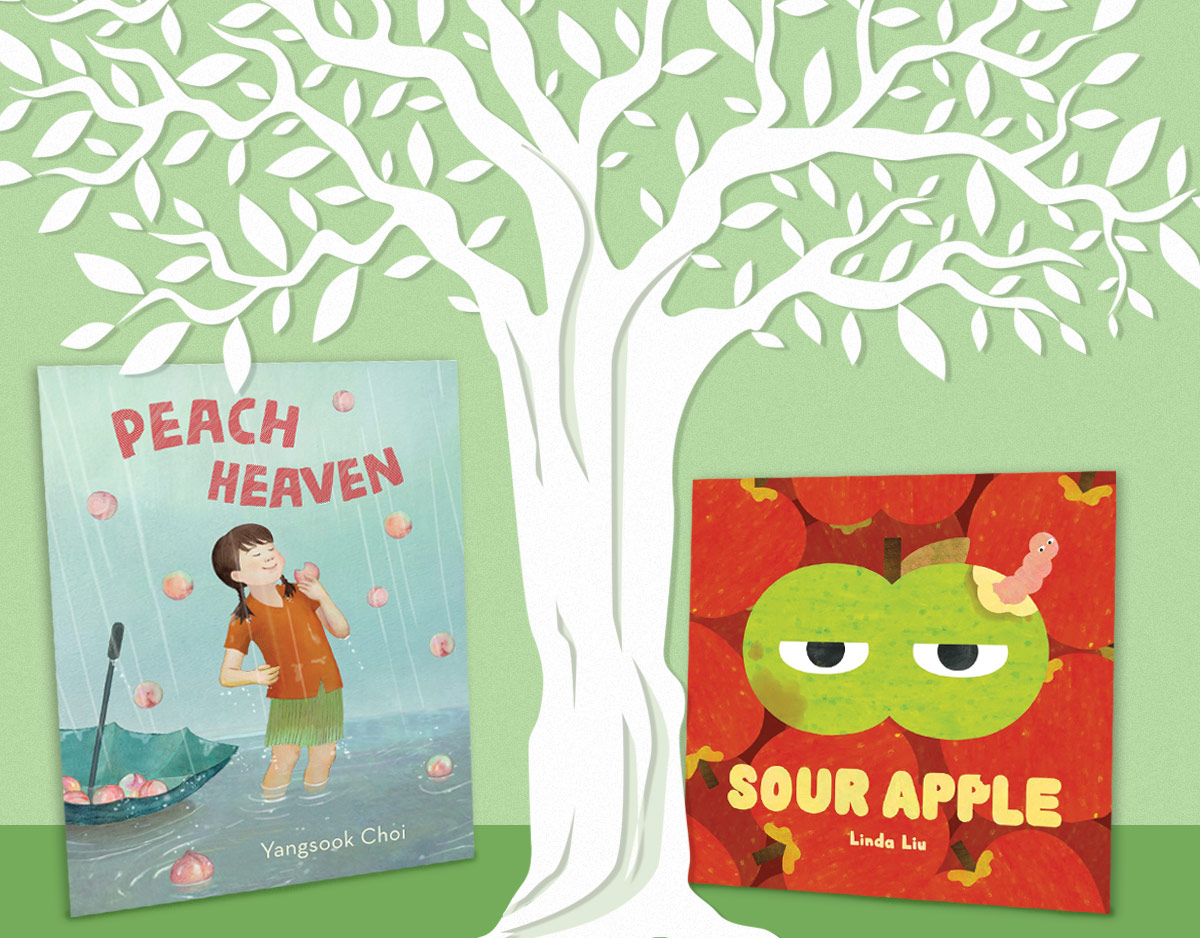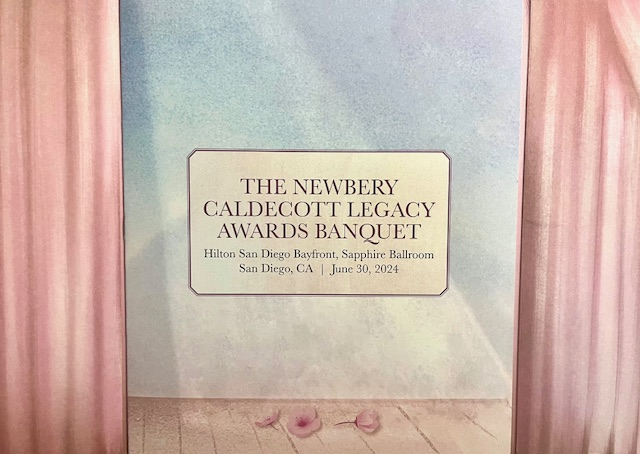SCROLL DOWN TO READ THE POST
Review: Far Far Away
Far Far Away by Tom McNeal. Alfred A. Knopf Books for Young Readers, Random House. 2013. Reviewed from ARC from publisher. Edited to add: National Book Awards shortlist.
 The Plot: Jeremy Johnson Johnson is haunted by a ghost, and honestly, it’s not that bad. The ghost doesn’t want to hurt Jeremy; far from it. The ghost wants to protect Jeremy!
The Plot: Jeremy Johnson Johnson is haunted by a ghost, and honestly, it’s not that bad. The ghost doesn’t want to hurt Jeremy; far from it. The ghost wants to protect Jeremy!
But protect Jeremy from what? Well, from the Finder of Occasions, of course. Wait, you don’t know what the Finder of Occasions is? Guess what? Neither does the ghost.
So the ghost mostly hangs around, talking to Jeremy (the only person who can hear him), tutoring him in math and vocabulary (yes, the ghost is very concerned with Jeremy’s education and Jeremy is very concerned with not cheating so allows tutoring but not whispering answers), and observing.
ADVERTISEMENT
ADVERTISEMENT
Observing Jeremy’s father’s deep depression after his wife left him, leaving the boy alone. Observing the odd ways of the villagers and how they treat people. Observing how the ton Observing Ginger Boultinghouse and how she flirts with both Jeremy and the mayor’s son. It’s really all a ghost can do, observe.
And like the ghost, we observe, and wonder, and get caught up in Jeremy’s immediate concerns — taking care of his father, paying their bills, wondering how to pay off a big loan, doing well in school, and, yes, his developing friendship (or something more?) with Ginger — so we, like the ghost, forget the Finder is still out there.
And then the Finder finds Jeremy.
The Good: To begin with, the ghost is Jacob Grimm, of the Brothers Grimm. It is Jacob telling this story: “What follows is the strange and fateful tale of a boy, a girl, and a ghost. The boy possessed uncommon qualities, the girl was winsome and daring, and the ancient ghost . . . well, let it only be said that his intentions were good.” Because it is Jacob, and because it is a tale told after, the tone and style are distinct, original, and infuses the whole tale. In some ways, I was reminded of Bartimaeus, except the ghost Jacob is constantly concerned with the well-being of Jeremy; but, like Bartimaeus, Jacob has a bit of an ego about it. He is, after all, Jacob Grimm.
Jacob, as ghost, has wandered the world, searching for release from his ghostly state. He believes that if he helps Jeremy avoid the Finder of Occasions that will somehow help him move to wherever it is his beloved brother and other family members are. So, yes, his original attachment to Jeremy is selfish, yet despite that (and despite being a ghost) Jacob becomes a sort of father-figure to the practically orphaned Jeremy. Jeremy’s mother abandoned the family years ago; his father took her leaving bad and hasn’t left the house since. Jacob is a product of his own times, so he doesn’t quite get all the modern references or lingo which can be amusing. He also uses old fashioned terminology to refer to things, such as calling the town of Never Better a village and the inhabitants villagers.
References and allusions to folk and fairy tales fill Far Far Away. A person loses a shoe, and I thought of Cinderella. A story is told of Prince Cake’s and eating one and falling in love with the first person one sees. These casual references, and some of the humor (Jeremy’s name) lulled me into forgetting the darkness of the tales. I began to see the happy endings as Jeremy’s friendship with Ginger deepens, as a solution is shown for his family’s financial mess, as his father, perhaps, will leave the house….
And I forgot. I forgot, like Jacob did, that the Finder was out there — or, rather, like Jacob, I was just suspicious enough of all the people Jeremy encountered that I became suspicious of none. And, like Jacob, “I was carried away [by Jeremy’s happiness]… when I should have stood fast and remained vigilant.” Yet, at the same time, we the reader are tuned in to the danger that is coming because Jacob is letting us know.
ADVERTISEMENT
ADVERTISEMENT
And the danger. Because there is a ghost, because the Finder of the Obvious has a name out of a child’s story, because the reader has been told about fairy tales over and over, for a few moments there I thought this would be a fantastical danger. I forgot that while Jacob is a ghost, or sees things from a nineteenth century perspective, Jeremy’s world is our world. The danger is not a witch or a dragon. It is a person. And a person can be the most dangerous thing of all.
I thought, silly me, that since this was about fairy tales I would laugh a little. And I did. But I also cried, and was scared, and wondered at just how Jeremy could be delivered from the danger he was in because it seemed so hopeless.
Two of my favorite television series this year are Grimm and Once Upon A Time. In reading Far Far Away, I was reminded that Once Upon a Time is much more based on Disney fairy tales than the Brothers Grimm ones. Far Far Away is much more Grimm (TV series) in tone.
Because I enjoyed spending time with Jacob and Jeremy and, even, Ginger. Because the villagers were more than they appeared to be. Because Far Far Away stayed true to the spirit of folk and fairy tales. Because the tone and the way of telling was different from anything else I read this year. Far Far Away is a Favorite Book Read in 2013.
Filed under: Favorite Books Read in 2013, Reviews
About Elizabeth Burns
Looking for a place to talk about young adult books? Pull up a chair, have a cup of tea, and let's chat. I am a New Jersey librarian. My opinions do not reflect those of my employer, SLJ, YALSA, or anyone else. On Twitter I'm @LizB; my email is lizzy.burns@gmail.com.
ADVERTISEMENT
SLJ Blog Network
One Star Review, Guess Who? (#206)
“Complex social dynamics exist in the simplest of conflicts.” A Kyle Lukoff Interview on Sorry You Got Mad
UnOrdinary | Review
Take Five: New Middle Grade Books in July
The Classroom Bookshelf is Moving
ADVERTISEMENT
ADVERTISEMENT







